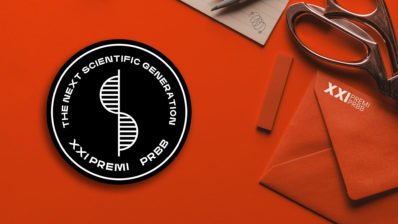On Tuesday, October 23rd, the Auditorium of the Barcelona Biomedical Research Park (PRBB) hosted a meeting to discuss the future of science from an European perspective.
The session was organised by EU-LIFE, an alliance of 13 European top research centres in life sciences with the headquarters at the Centre for Genomic Regulation (CRG) at the PRBB.
EU-LIFE aims to support and strengthen European research excellence and be a voice for research in European policy. The two talks were focused on:
- advocacy for research in Europe
- the future of research evaluation.
Advocacy
The session started with Stephan Kuster, from Science Europe, a lobbying association of European Research Funding Organisations (RFO) and Research Performing Organisations (RPO), with the aim of fostering research in the continent. (NOTE: so far the CSIC is the only Spanish member; members should be national non-for profit funders, independent from governments).
He talked about some of the topics they have been lobbying about, such as the clinical trials regulation, the GDPR and its effects on research, or one of their current battles, the copyright directive, which they fear could affect research, for example by making text and data mining more difficult.
His general advice about how to influence research and policy:
- the earliest you lobby, the better (the longer you wait, the more competing interests you will have to fight against)
- make alliances and join groups to be aware of what’s going on (good to be part of EC expert groups, even if you just join as an observer)
He also had a couple of words about the biggest challenges in dealing with politicians, namely
- anything longer-term than 3 years is hard to sell
- you need figures, specific numerical impacts of the actions, to get their attention
- keep in mind you have to compete with other sectors (research is important, but so is agriculture…)
In that sense, and although he is a firm defender of the key importance of research, he acknowledged that, nowadays, the migration crisis might be more important, and that we can’t think that science can solve everything…. a word of caution against overpromising!
Evaluation
Paul Wouters, from Leiden University, and one of the proposers of the Leiden manifesto, was next to speak, and his topic was no less interesting: the future of research evaluation. Some of the main take-home messages were that we need to measure quality and impact in context; that we need to look at all dimensions (how are we doing regarding gender diversity? are people happy in the lab?); and that metrics should not manage to impede the very process is trying to help. In fact, he advocated for the death of some ‘zombie’ metric indicators – indicators that had stopped being useful, but kept on being used by default, such as the Impact Factor, and called for a greater diversity of key performance indicators.,
He also presented the VOSviewer tool, which anyone can use to map their own (or their institution’s) bibliometric network.

During his talk and the following roundtable there were some opinions favouring peer review (human judgment) over pure metrics, but not so many in favour of altmetrics, since it was agreed that buzz in social media doesn´t necessarily equate to social impact.
All in all, a thought-provoking session which surely didn’t leave indifferent any of the attendees.







